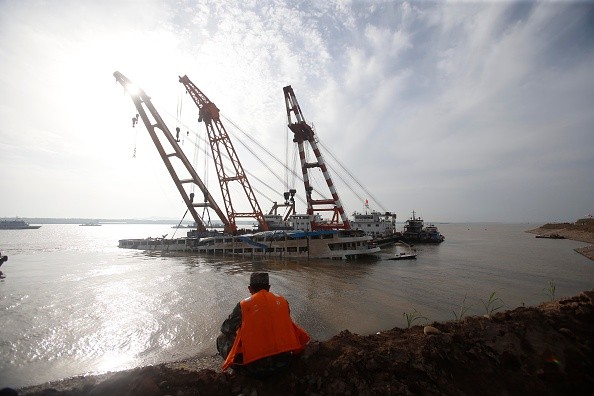Scientists revealed on Monday that the air pollution in China--aggravated by the boom in shipping industry--is killing thousands every year, Reuters reported.
According to the Chinese-helmed study, the ship-caused pollutants such as sulfur dioxide, which generates acid rain, has led to around 24,000 premature deaths annually in East Asia, where eight of the world's 10 largest container ports are located.
Of this figure, about three-quarters were in China, while others were mainly in South Korea, Japan, Taiwan, Macau and Hong Kong. Many have died from cancer and heart and lung diseases.
The study, which was published in the Journal Nature Climate Change, noted that pollution coming from ships is often overlooked as compared to other contributors such as factories and cars.
Since 2005, ship traffic in East Asia has increased over two-fold, with "some pollution from the fuel oil of ships [wafting] inland," Reuters wrote.
Moreover, the study also revealed that carbon dioxide emissions from shipping has also doubled in less than ten years' time.
In 2013, 16 percent of the global total amount of this man-made greenhouse gas came from the said industry.
The recently released report was based on satellite data that monitored nearly 19,000 vessels.
Though the figure is still a relatively small share in the estimated one million deaths due to air pollution in the region, experts are alarmed with the rise of this statistic.
The study remarked that the number of such deaths could be as low as 14,500 or as high as 37,500, considering various uncertainties.
U.S. based- Duke University's Drew Shindell, one of the study's authors, shared that the reason why they conducted the research is the sharp increase of levels of shipping in the region.
"A few years ago in East Asia the levels of shipping just weren't that large. Now they're huge," the scientist noted.
For China's part, it was reported that its government will begin requiring more eco-friendly ship fuels in its coastal regions. Shanghai, one of its most developed cities, is regarded as the busiest container port in the world.
Meanwhile, the International Maritime Organization (IMO), working under the United Nations, also eyes to decrease the sulfur limit in ship fuel from 3.5 percent to 0.5 percent by 2020.



























